Of Murder and Motherhood
Their children are gone—two of them murdered, one missing and charged with the killing of another—but these moms of the Bakersfield 3 are united in their fight for justice and answers.
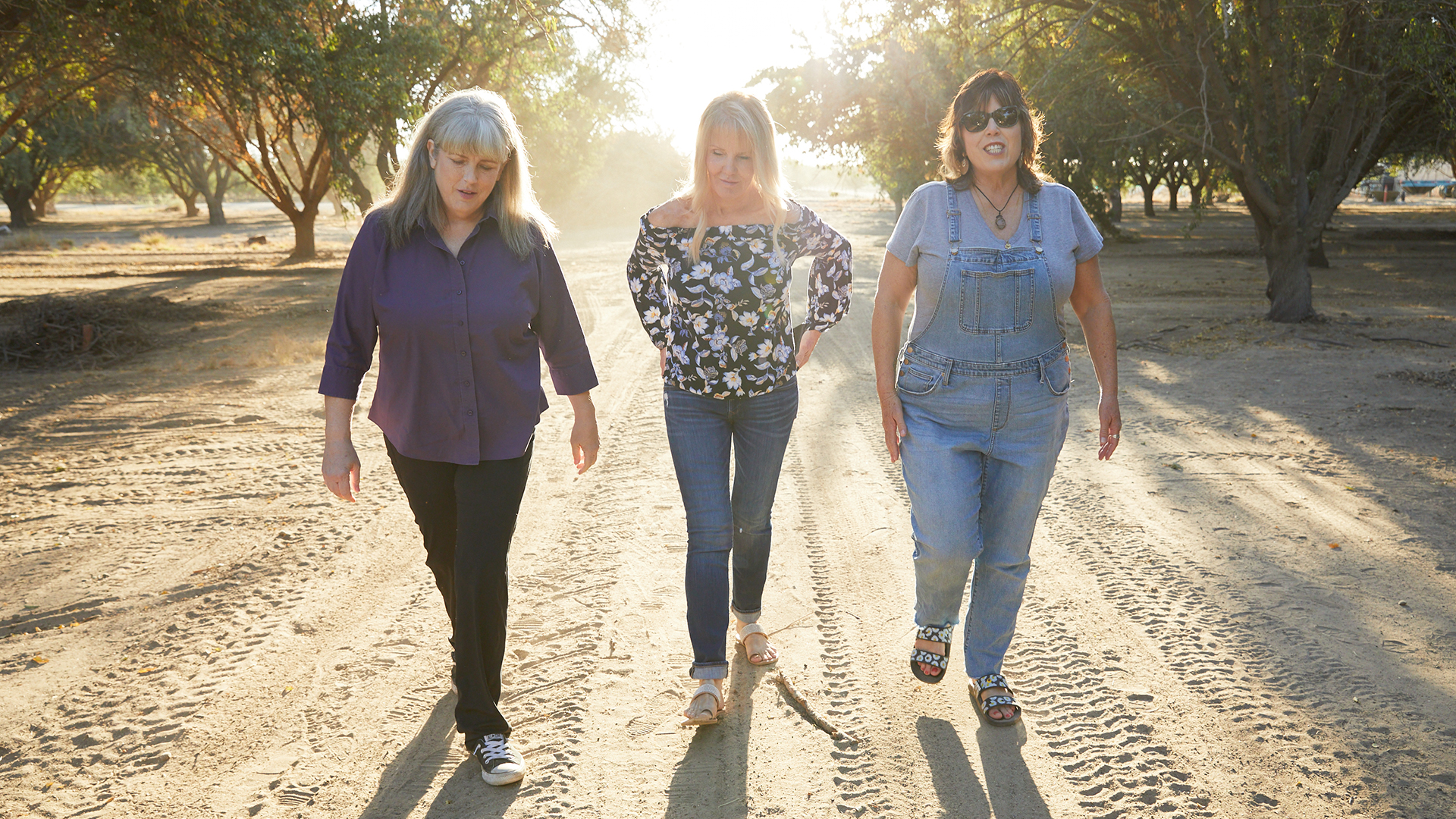

Diane "Di" Byrne finger-combs a fleck of styling cream from Jane Parrent’s layered hair. Di, the former owner of a modeling/talent agency who doesn’t usually do casual—even her jeans are neatly cuffed—is wearing flats, something she picked up from Jane. Once, when they were going to walk in an almond orchard, Jane told her not to wear heels, but Di still showed up in chunky platforms. In turn, Jane credits Di with teaching her etiquette, advising her on dressing for a fundraiser (no Birkenstocks), and clueing her in on when to keep quiet or speak up when dealing with the media. Of course, Jane owes Di for nixing the SpongeBob face mask Jane wanted to wear in court.
That is where the two women are on July 28, 2021, as Di touches up Jane’s hair: the metro division of California Superior Court of Kern County in Bakersfield, the largest city in the county and the ninth largest in the state. Jane and Di sit side-by-side on a bench outside courtroom 14—their “regular” courtroom. They have been attending hearings here for more than three years, ever since Di’s 38-year-old son, James Kulstad, was killed in a drive-by shooting and Jane’s 20-year-old daughter, Baylee Despot, disappeared.
The hearing the two women are attending today, however, doesn’t directly concern either of their children. It is about the brutal murder of Micah Holsonbake, 34, who went missing in March 2018, the month before Baylee disappeared. His severed arm was found five months later in the nearby Kern River; his skull was discovered in August 2021.
Inside the courtroom, the two women are joined by Micah’s mother, Cheryl Holsonbake. The three sit quietly in a back row as the lawyer for defendant Matthew Vandecasteele asks for a postponement. Cheryl sighs, loudly. The other two look at her with understanding, not saying or doing anything—just being present.
The women—in their late 50s and early 60s—are known as the mothers of the Bakersfield 3, a name Di’s ex-husband came up with. It has since been shortened to BK3.
B is for Baylee.
K is for Kulstad.
Get exclusive access to fashion and beauty trends, hot-off-the-press celebrity news, and more.
3 is a sideways M, for Micah.
It could also represent the trio of mothers, three very different women brought together by tragedy who through each other have found the strength to dig for answers, however brutal they may be.
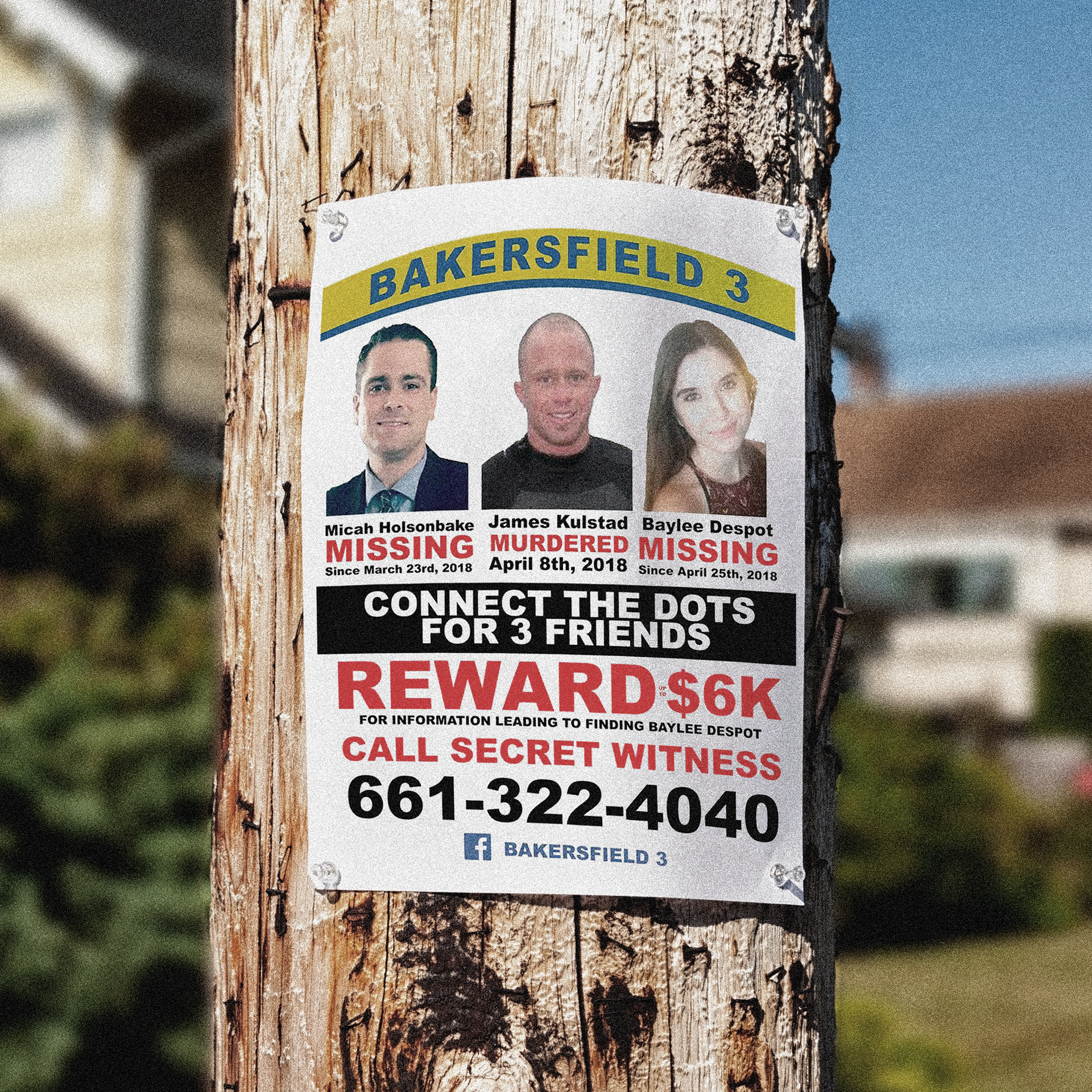
The moms posted many flyers around Bakersfield highlighting the three cases together.
The trial for Micah’s murder is scheduled for this month, though it is expected to be postponed. Vandecasteele, who was accused of kidnapping and conspiracy (among other charges) in the case, agreed to a four-year prison term in exchange for his testimony. But there’s a major twist: One of the two remaining defendants is Baylee Despot, Jane’s daughter. On May 27, 2020, Baylee—who has not been seen or heard from since April 25, 2018—was charged (in absentia) with murder, along with Matthew Queen, the man she was living with, who now awaits trial.
When Cheryl and her husband got the news, they “were shell shocked. Like, Baylee, really? Okay,” Cheryl says. When Jane heard, she was devastated: “What do you say?”
And yet, the three mothers sit, shoulder to shoulder, as they’ve done for every hearing related to Micah’s murder, as well as some other local cases in which they supported the families of victims. Almost four years ago, when they teamed up to search for answers in their respective children’s cases, they made a pact to see each case through to the end—together. According to Di, that is when they’ve gotten leads and uncovered important facts: when they work together. “Stronger together,” says Jane.
When Cheryl was nervous about giving a DNA sample for law enforcement databases like CODIS (Combined DNA Index System), Di brought her to the police station. When Di is unable to drive (knowing her son was killed in a car, she sometimes panics), Jane takes the wheel. After the severed arm was identified as belonging to Micah, Jane and Di placed yellow roses—his favorite—by the river.
Jane, who is single and with a sunflower tattooed on the inside of her right wrist, is the free spirit—a self-described “party girl” who is seldom silent. Cheryl is organized, nurturing, and angry, the person who taught Di it is okay “to be quiet” and spend the day in bed when things get to be too much.
Cheryl calls herself an introvert and lives in a rural part of Kern Country with her dogs and husband. Inside her wallet is a mini Post-It Note that reads: “Fight like a mother!!!” Di is the one Cheryl calls to refresh her memory when things get muddled and the one Jane credits with knowing “all the bigwigs.” Family members credit Di's ability to control her emotions, make time to grieve, and then pull herself together to get things done as the reason their kids’ cases have been kept alive. Di even shared coveted time with the detective assigned to her son’s case with Cheryl, convincing Cheryl just how serious Di is about their children’s cases being related.
“She wanted to make sure that [the authorities] knew this wasn't a solitary incident, that this was bigger than just James or just Micah,” says Cheryl. “And we were grateful.”
In normal circumstances the three women’s paths would never have crossed; they are too different. Yet, just like relatives who have little in common, they are close because, as Di’s 21-year-old granddaughter Camryn Albert-Kulstad says, “they’re your family.” And it is to each other, rather than friends or family, that they turn for support.
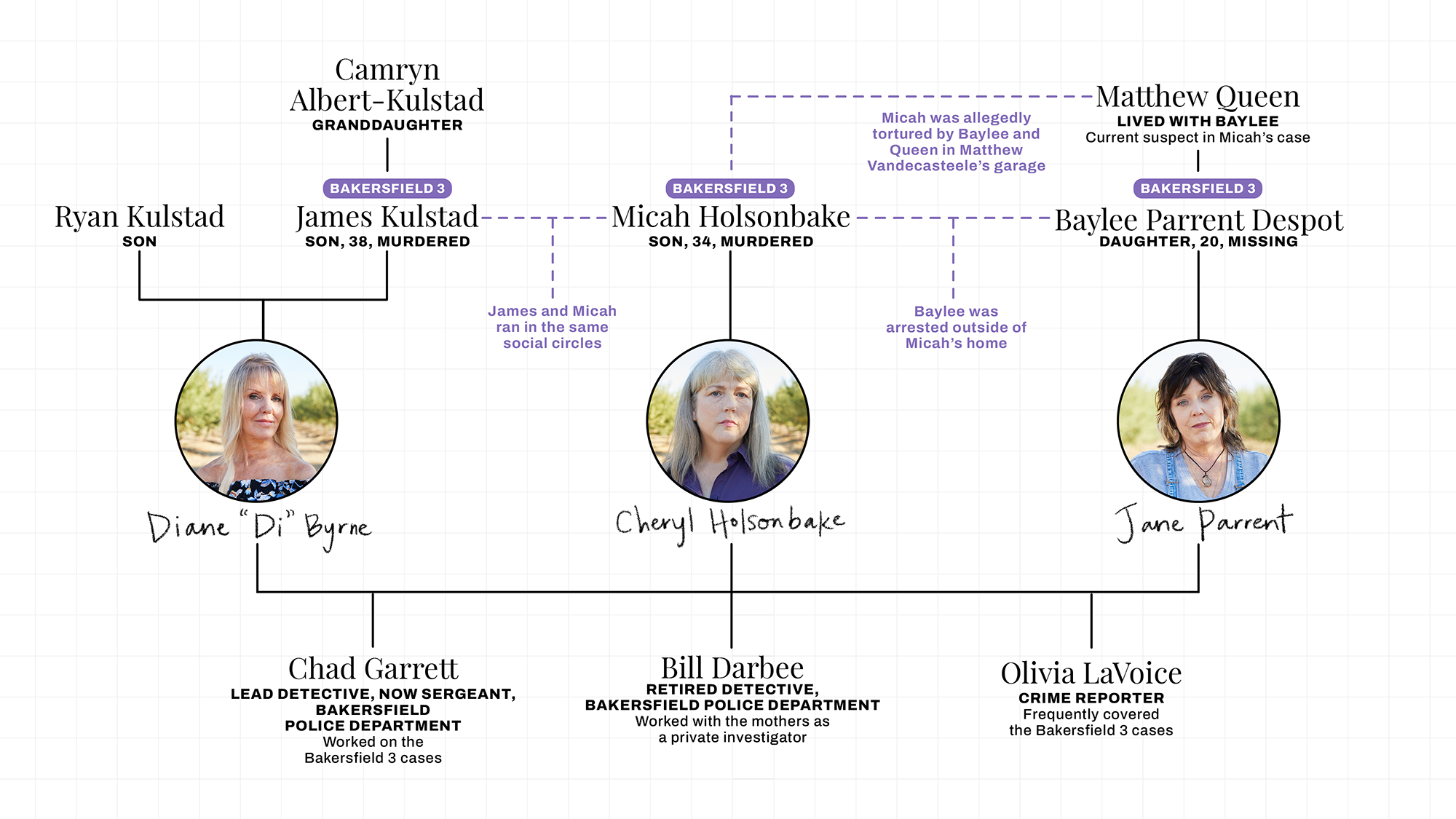
Di
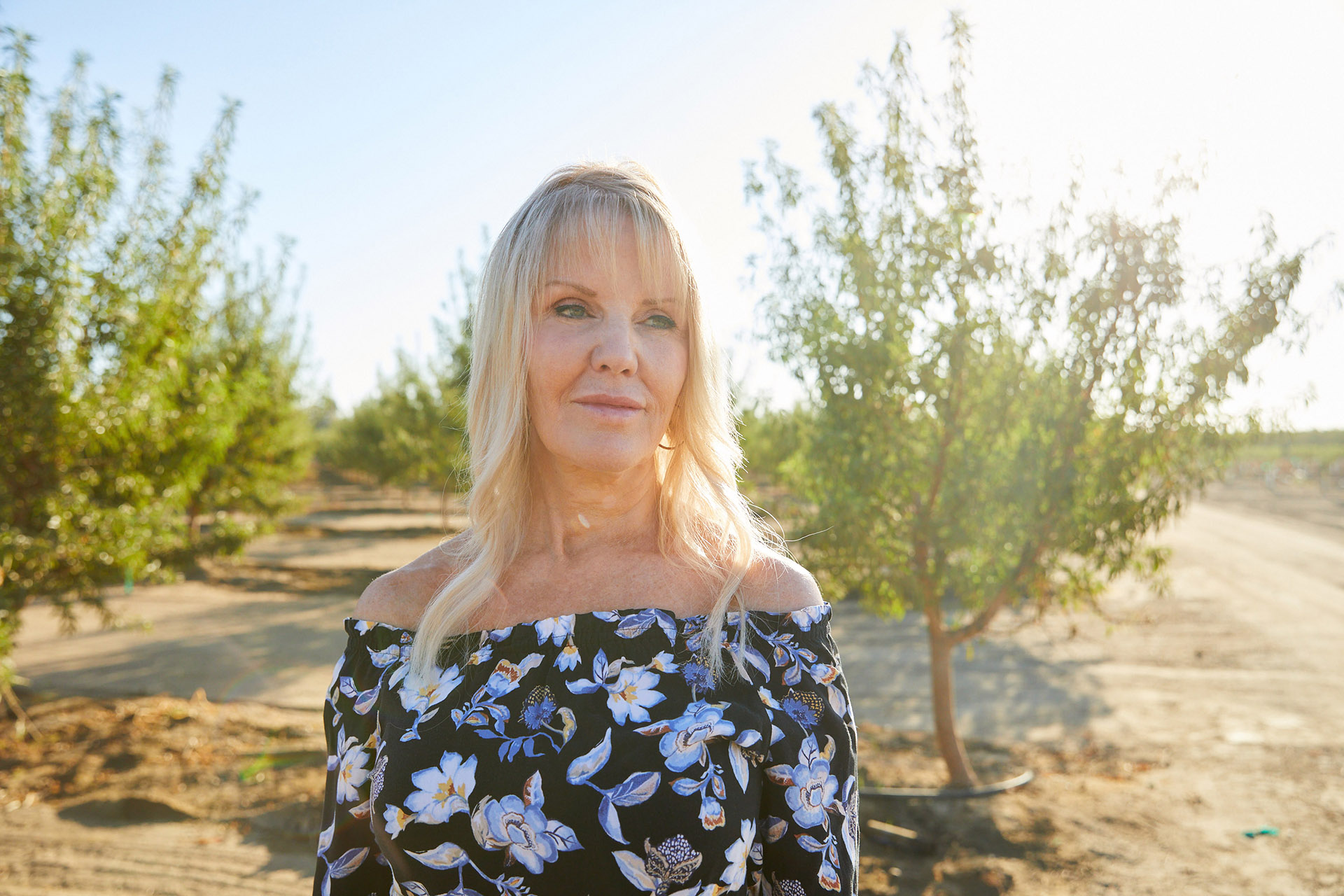
Di Byrne in a Bakersfield almond orchard that figures in the cases.
Di was the first to make a connection in the spring of 2018. Her son had been dead for about two weeks. Another man, Micah Holsonbake, had been missing since March 23, something Di learned from one of James’s friends. Micah was someone Di had heard James mention hanging out with. Di wondered if Micah’s disappearance was related to her son’s murder. Through a mutual acquaintance, Di found Cheryl’s number and called.
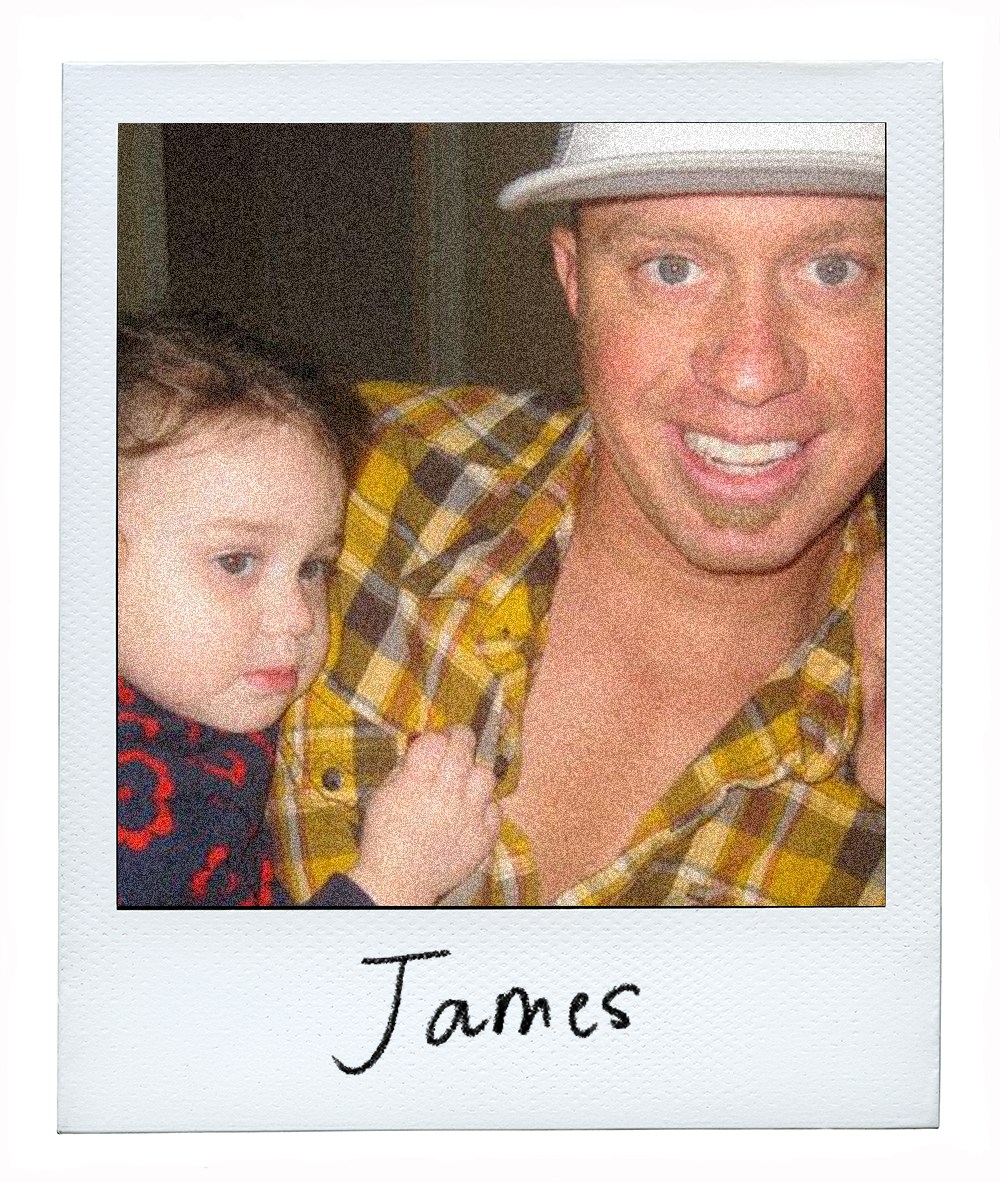
James Kulstad in 2012 with his younger daughter, Autumn.
The journey that led to the mothers meeting began in 2007. James, who had been living and thriving in San Diego—surfing, skateboarding, and inventing (he had patented a skateboard part)—was struck by a car while crossing a street. That accident, she believes, triggered his drug addiction. His shattered arm and wrist were held together with pins. He was prescribed opioids for the pain. Fentanyl and heroin followed.
Over the next decade, he lost his job and his home. James was proud and private, like his mother, which is why she remembers his vulnerability back then. “For him to call me and say, ‘Mom, I don't know what I'm gonna do. I'm losing my apartment,’” was shocking, says Di. He moved back to Bakersfield and in with her. There, he hung out with his brother Ryan, his daughter Camryn, and his cat, Kiki.
On the night of April 8, 2018, James drove Di's electric Fiat to the Southwest Bakersfield home of an acquaintance. Ryan Kulstad had been hanging out there earlier that evening. On the Dr. Phil show, Ryan said that the acquaintance owed James money and hadn’t wanted James to come to his house. After running an errand, Ryan was on his way back to the acquaintance's home when he spotted James pulling out of the driveway. Shots were fired from another vehicle. A bullet pierced the Fiat’s door and hit James in an artery. Ryan held his brother as he died. The case remains open; no suspects or leads have been made public.
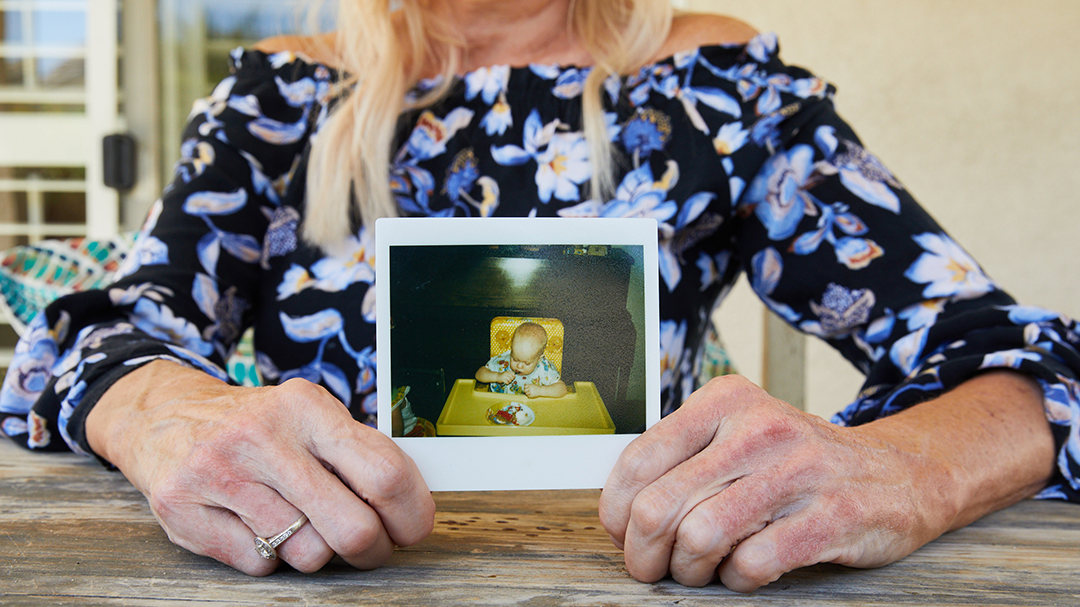
Di holds a Polaroid of James as a baby. She remembers that as an adult he loved to cook and, she says, "bring people together with food."
Cheryl’s and Jane’s may be the voices heard most often in the press, but it is Di’s soft murmur that is almost always backing them up, joining them together, reining them in. In the group of moms, Di is the mother of them all. She is the one that used her networking skills to get the women on national TV (Dr. Phil, twice). Di will talk about how she’d wait outside James’s high school in San Diego to make sure he wouldn’t leave early to go surfing, but won’t say much about her own childhood—other than that her mother died when she was young. She shares this with granddaughter Camryn, who, as a baby, lost her own mother. Although raised by her maternal grandmother, Camryn says both Di and James were active in her life—until drugs took her father away.
What James had in common with Micah was addiction. What they didn’t have in common, it seems, were their alleged murderers.
Cheryl
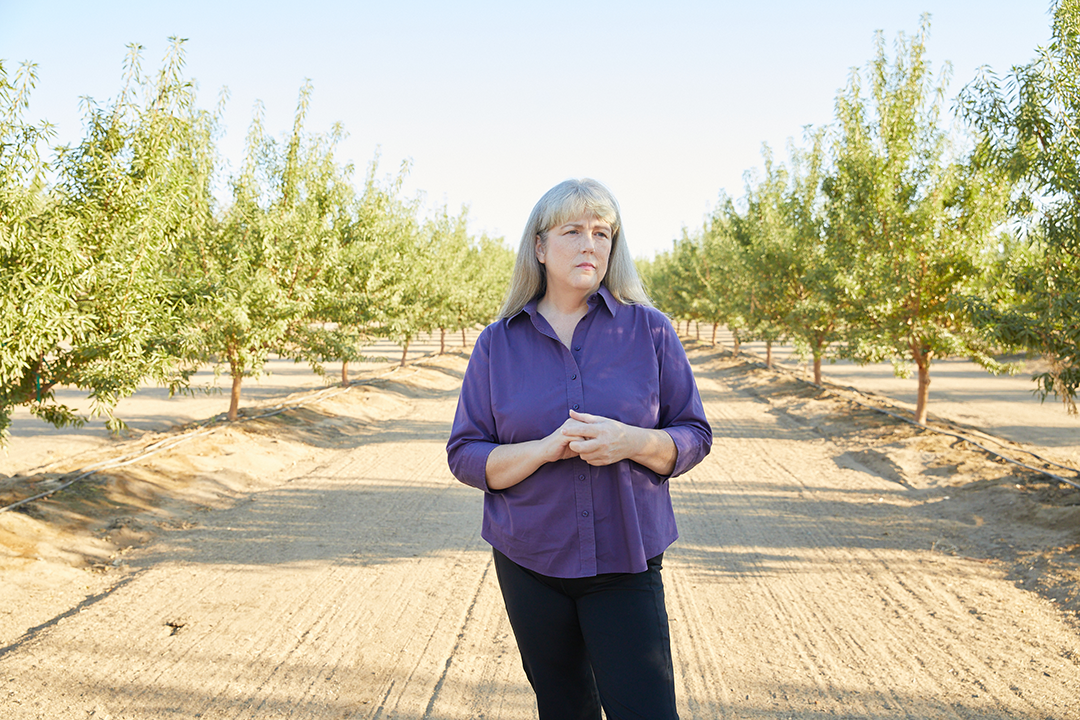
In a Bakersfield almond orchard where her son was allegedly taken by Matthew Queen, Cheryl Holsonbake wonders if she will ever know what really happened.
Cheryl Holsonbake wasn’t surprised to hear from Di that spring of 2018. The name James Kulstad was mentioned by Micah’s landlord and other acquaintances when Cheryl and her family started searching for clues to his disappearance. The two hung out in the same circles. When Di called saying they should talk, Cheryl said, “Absolutely.”
Cheryl knows Bakersfield (population 403,455) well enough to call it a community rather than a city. It’s the central hub of a county that's filled with agricultural areas and oil fields, surrounded by desert and mountains. Today, there is a downtown with some high-rises, but much of Bakersfield is multilane highways and walled-off developments. Cheryl left Bakersfield in 1981 for a Christian college in Arkansas, followed by her high school boyfriend, Lance. The couple married and had two boys—Micah and Luke. Micah was in third grade when the family moved back to California. Bakersfield was different then; Cheryl remembers when everybody knew you and your business, like in an overblown small town. There were block parties. Events in the church hall. Potlucks at the park. Farmland stretched out all around. Generations of families stayed put. Now, when she thinks of Bakersfield, all she can think of is homicide.
“How do we get Hometown, USA, back?” Cheryl wonders.
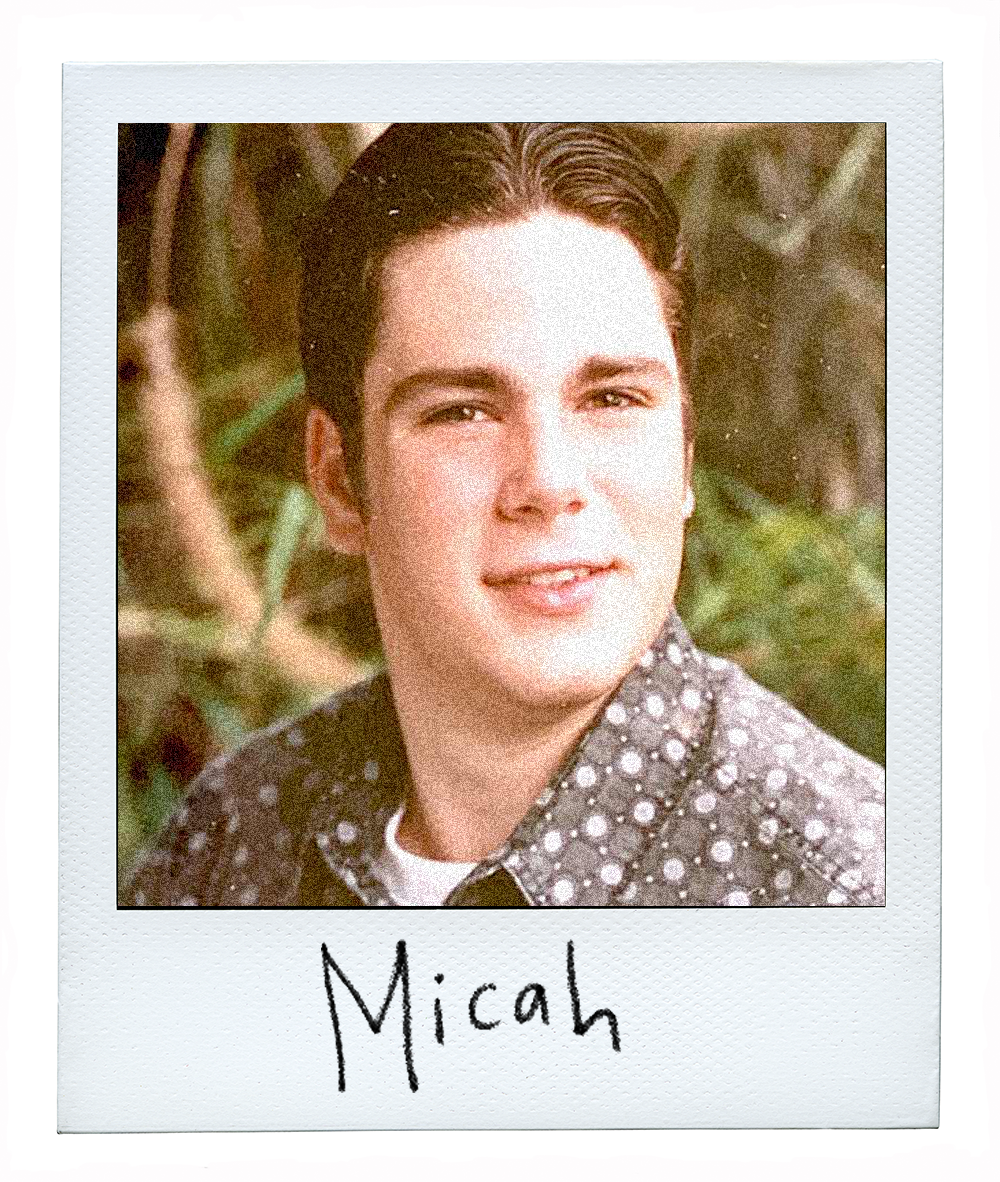
Micah Holsonbake in 2001.
Micah was class president his freshman year at that same Christian college. Then the Twin Towers fell and he signed up to serve in the military. His service was cut short in spring 2003 by surgery to remove a large benign growth in his throat. For that, he was prescribed Vicodin. Later, there was OxyContin. In 2015, he survived an overdose of Fentanyl-laced OxyContin. After that, he lost his banking job and the relationship with his family deteriorated. To supplement his income, he and some friends started building guns in a garage; the weapons were later sold illegally.
On Easter 2018, he didn’t call. Usually glued to his phone, Micah did not answer any of Cheryl’s calls over the next week. For the phone to ring and ring and then go to voicemail—“It was impossible for it not to be something bad,” she says.
Cheryl and her family first learned about Baylee from some of Micah's friends. Then Micah's dad saw the "missing" flyer for Baylee Parrent Despot and things clicked. He texted the number on the flyer. Jane responded. The parents didn’t know each other, but their children had. Turns out, Baylee had been arrested outside Micah’s house for being drunk and disorderly in July 2017.
Jane and Cheryl at first struggled to connect; it had been easier with Di, who right away swapped information about their sons’ associates. Jane seemed overwhelmed when Cheryl started talking about how their children’s cases might be connected. Cheryl called Jane a second time; she needed help finding a location related to Micah’s case. Jane took her there. Then they shared a meal and started talking about Matthew Queen, the man their children had in common. Baylee had been living with him, Micah may have been assembling guns for him.
The first time all three mothers met was at the local NBC affiliate KGET TV17 in August 2018, when crime reporter Olivia LaVoice brought them in for a televised interview. Soon, all of their cases were being handled by Sergeant Chad Garrett. (Garrett declined to comment for this piece while awaiting a trial.) The three mothers started showing up at county board of supervisors meetings to talk about the nightmare they were living—and with suggestions for what could be done to draw attention to the unsolved cases.
The trio aren’t relying on law enforcement alone, according to LaVoice, “they're getting other people, other elected officials involved too, which just never happened [in the community before].” When they didn’t feel like search efforts were accomplishing enough, the moms researched what other counties were doing, finding out what equipment and technology they had, says LaVoice, who’s no longer at the Bakersfield station, but is working on a podcast about the cases. Told by local law enforcement there wasn’t funding for new equipment, the mothers raised money themselves. In May 2020, they gave the Kern County Sheriff’s Office a $17,000 sonar scanning system to aid in water search and rescue efforts.
They did for me something that I couldn’t do for myself
Cheryl Holsonbake
In the months before they identified the arm found in the river—stashed in a bag weighed down with rocks—Cheryl read an article about ANDE, a company that offers automated DNA testing in less than two hours. Cheryl told Jane. Jane got more information. Di used that new info to set up a meeting with local government officials. The moms explained that although bone fragments had been sent to Sacramento for DNA testing through the State Department of Justice, results could take a year or more. ANDE, a private company, could do the testing and get the results back right away. Soon ANDE reps were testing the arm.
That is how, just before Christmas 2018, Cheryl learned that it belonged to her son—the boy whose name she had chosen while walking along that same river. After law enforcement broke the news to the three mothers together (Lance was there too), Di and Jane went to that riverside spot to place flowers.
“They did for me something that I couldn’t do for myself,” says Cheryl.
Cheryl can’t go near the river out of fear she will go too deep, that she will wade in there to be in the last known place her son was. Jane searches the river, rolling up her pants and stepping in, because it is the last place Baylee might have been. She believes this because her dreams and a psychic medium point her to the river, and that’s where Micah’s remains have been found. Going to the river is Jane’s therapy.
But then Cheryl has something—pieces of her son’s body—while Jane is still looking for anything that might tell her what happened to her daughter.
Jane
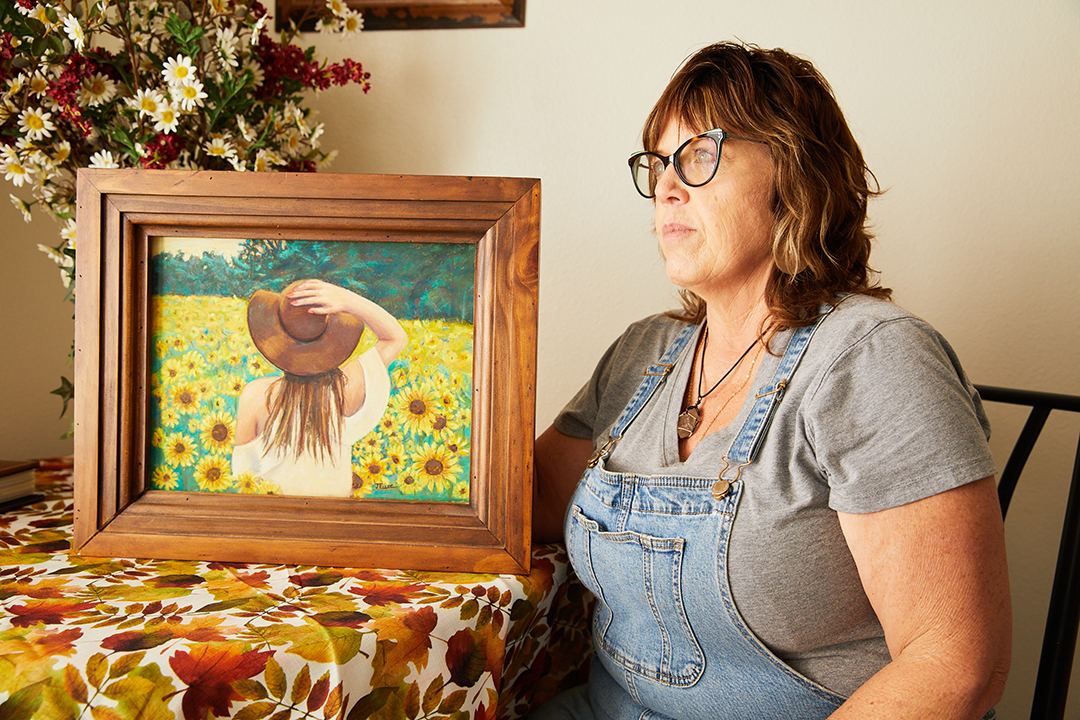
Jane Parrent holds a 2019 painting by Joan Eure Patterson that she thinks looks like Baylee. Mother and daughter had planted sunflowers together in the summer of 2017.
Jane has a dog whose name she’s not sure how to spell. Her daughter Baylee adopted Lanah—or is it Lana?—when the Belgian Shepard was just a puppy. Baylee went missing a year-and-a-half later. Now the dog is four and Jane takes it to a park several times a week to exercise. In the trunk of her Kia, next to a water dish, are a stack of missing-person flyers. They are always there. She has a staple gun and tape in her fanny pack and calls herself “Flyer Girl,” tacking them up anytime she sees an empty pole. The first time Cheryl ever went to therapy after Micah disappeared, Jane took her. Jane is “boots on the ground,” following every lead no matter the danger. It is not uncommon to find her wearing overalls and packing pepper spray. That’s just who she is.

Baylee Despot in 2014 when she was 17.
Her missing Baylee, her girly-girl, used to wear princess costumes and raise pigs and a rabbit for Future Farmers of America (FFA). Jane’s youngest daughter (Baylee has an older sister, Katelyn) is tall and slim with a sleeve tattoo down her right arm. After high school, Baylee got married in Las Vegas and worked in restaurants. She was excited about turning 21 and getting her new ID.
Now all Jane has of Baylee is a few boxes of belongings, stored in a closet. Jane thought about putting the clothes in a cedar chest and spent an entire day researching antique or vintage pieces. But then it dawned on her: “This is like Baylee's coffin.” And she couldn’t do it.
The clothes weren’t even Baylee’s favorites. Jane believes those and some of Baylee’s other day-to-day possessions are still in the home of now-jailed Matthew Queen, the man charged with Micah’s murder who was involved with Baylee when she disappeared. Jane wants more. Clothes, information. Anything. Everything. As a mother, she says, you want something that “smells like them, which is like they're here.”
Jane feels the guilt of going on with regular life, of grocery shopping, while her child’s whereabouts are unknown. “Why am I buying food for me when my daughter is missing?”
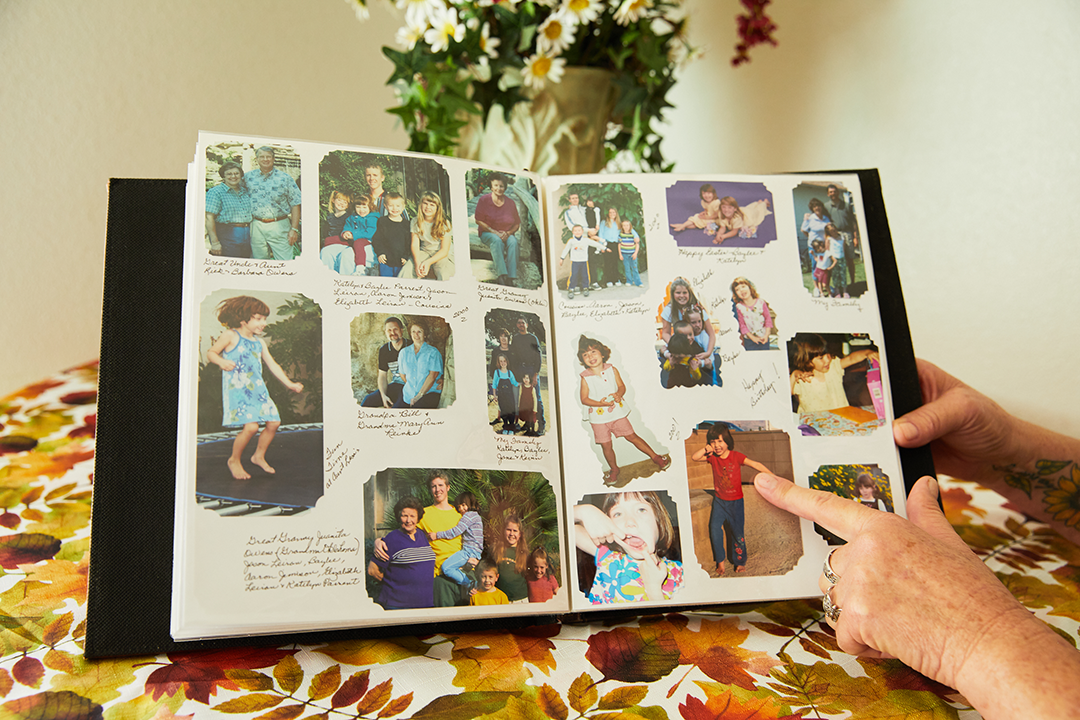
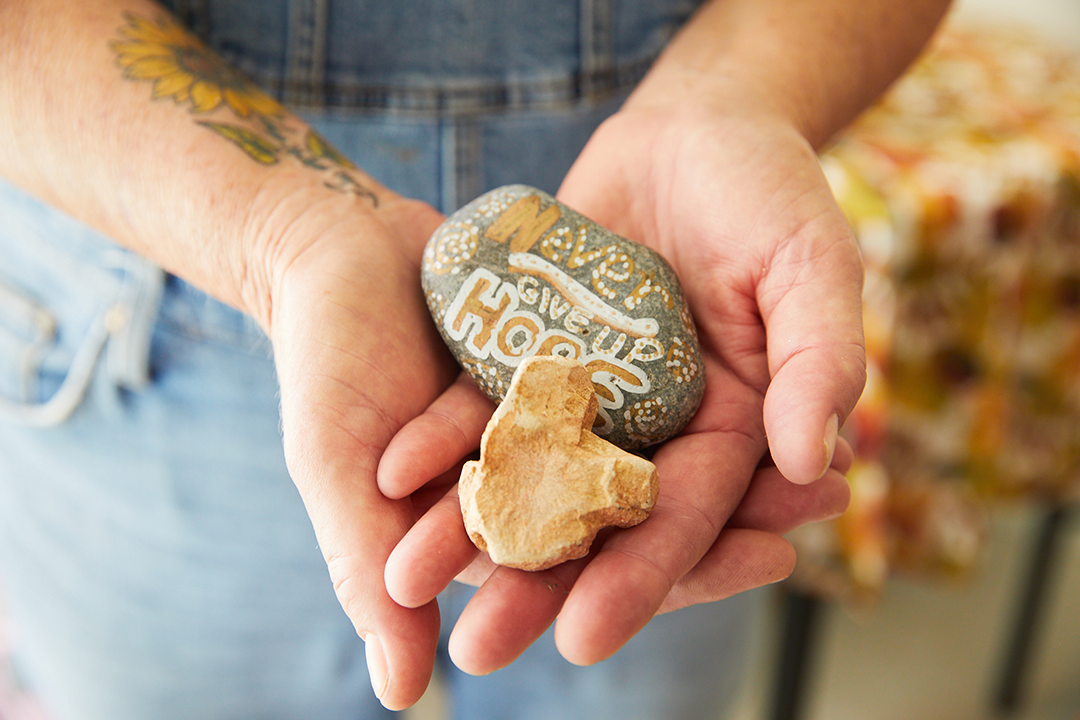
But Baylee, like Micah and James, was starting to go away long before she actually went missing. She had been diagnosed with bipolar disorder at age 20 and, according to her mother, may have been bulimic. She was adrift. Like Micah, she overdosed and survived. Like James, she was in a car accident, hers in 2017. That year, her husband filed for divorce and she was arrested twice, first outside Micah’s house and then, in December, on weapons charges alongside Queen. (She paid a fine and was given probation.) Other traumatic things happened that year: a sexual assault she reported to police (her mother says it was a second assault); a restraining order placed against an acquaintance. But these aren’t things Jane talks about. She doesn’t want to do anything to potentially jeopardize the case against Queen and thereby undermine the chance for one of the Bakersfield 3 to see justice. Jane wants that for Cheryl.
“I fucked up a lot [as a mother],” says Jane. “I have a lot of guilt with, you know, What if I would have done this, maybe Baylee wouldn't have got so lost?”
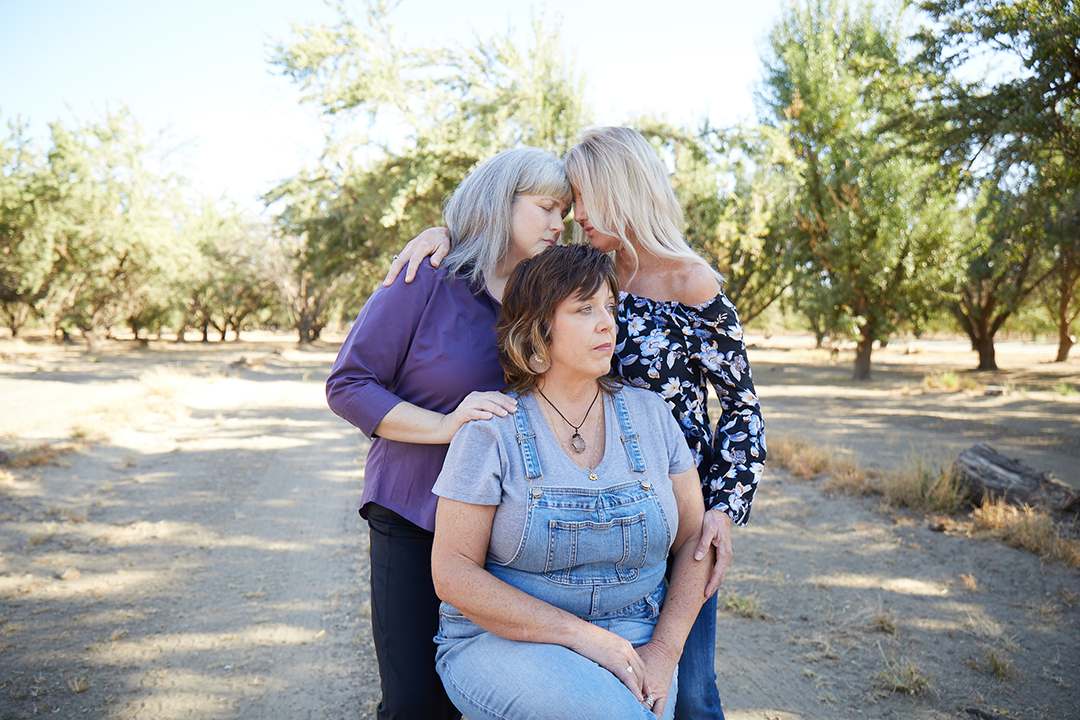
The Bakersfield 3 moms know some of the same feelings of loss and are there for each other no matter what happens.
In May 2020, Baylee and Queen were charged with Micah’s kidnapping, torture, and murder. The pair are alleged to have brought Micah to Vandecasteele’s garage in March 2018 to question him about a firearm they say Micah stole from Queen. They bound his arms with zip ties. According to Vandecasteele, Baylee entered his apartment to obtain a knife. He had researched dissolving a human body. Prosecutors believe Queen and Baylee tortured and killed Micah and then disposed of his body. Then the alleged killers “hauled it out there and chucked it in the river like trash,” Cheryl says. “They just wanted to annihilate, remove. And they did. They did their very best to take him from us completely—without even the ability to bury him."
When a woman’s leg was found at a lake in the Buena Vista Aquatic Recreational Area about 25 miles southwest of Bakersfield in July 2018, Jane was sure it was Baylee’s—it just had to be, she says. It turned out to belong to 64-year-old Shirley Mae Cassel, a Santa Ana resident. The three mothers placed a cross there, anyway, by the murky water. They had nicknamed the previously-unidentified deceased “Lady in the Lake,” “Lil” for short, and shared her story on Facebook. It had become about more than their children. It had become about Bakersfield and Kern County. Since 2016 the homicide rate in the county has been the highest in the state. The three women formed their nonprofit, the Bakersfield 3 Charity, in April 2019, to raise money and awareness for countywide crime-solving efforts. The Kern Secret Witness Program, a nonprofit, which provides monetary rewards to anonymous tipsters who help solve crimes, had less than $2,000 in 2018. An April 2021 golf tournament hosted by the Bakersfield 3 Charity and the Kern Law Enforcement Association raised more than $25,000 for the program. At the country club where the event was held, Camryn scanned a display of crime victim photos for the face of her father, who had loved golf. In Camryn’s mind, it was James’s event. But his photo wasn’t there; the photos were from dozens of more recent crimes. It was another reminder that the Bakersfield moms, says Camryn, “are advocating for so much more than just their own families.”
Retired Bakersfield homicide investigator Bill Darbee says, half-joking, that the moms’ relentlessness would have driven him “absolutely nutso” if he had worked the case. (Instead, early on he worked unofficially with the three as an investigator.) While he says it isn't that unusual for mothers to follow up on their children’s cases—he calls other women who do this “Mama Bears”—these moms “definitely are more involved than any other homicide investigation I've ever seen.” Their Secret Witness money attracts tips that lead to arrests, he adds. But what Darbee finds unique is the empathy they have for each other. This, he says, was dramatically demonstrated by Cheryl’s graciousness after Baylee was charged with Micah’s murder.
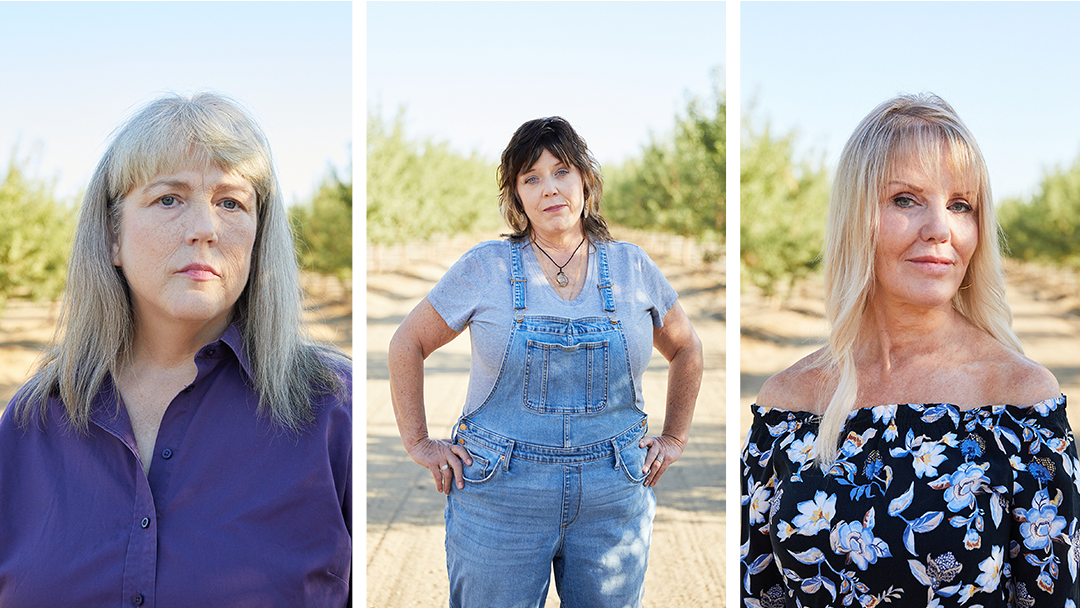
Cheryl, Jane, and Di visit the almond orchard together; it might be one of the last places seen by Baylee and Micah.
“I really thought, if anything, that was going to split the mom's passion for it, but it has done the opposite,” Darbee says. Immediately after learning about the charges being brought against Baylee, Cheryl went silent. It wasn’t just the news that crushed her—it was specifically the mention of torture.
“The Baylee everybody knows and loves, she would never ever do anything that horrific to anybody unless her life was in danger or she was threatened, or maybe she was drugged and didn't know it,” Jane told reporters in May 2020. “I'm not trying to make excuses, I just want answers ... so until we can find her, if she's alive, and talk to her, only she knows for sure.” (Although Baylee has not been seen in nearly four years, prosecutors maintain that there is no known physical evidence that definitively confirms her death.)
Cheryl understands Jane’s defense of Baylee. “I’m a mother,” Cheryl says. “The first thing I would say is ‘Oh, my son would have never done that.’ ” After all, Cheryl hadn’t wanted to believe her son was putting together guns and selling them for cash. Then people sent her video clips of Micah waving guns around.
As they wait for answers in their children's cases, where once Cheryl would have called Jane, she now calls Di. It isn’t that she blames Jane; Cheryl just wants to protect Jane from the gory details of the actions her daughter is accused of. And when the trial starts this month, there are sure to be surprises—unpleasant ones; there usually are. Questions arise, such as: Why didn’t Baylee try to get help for Micah?
“Baylee may have participated more actively than any of us want to consider,” says Cheryl. But that won’t change Cheryl’s relationship with Jane. And it won’t change Jane’s feelings for Baylee.
“We all still love our children,” says Cheryl—at their low points and their high points.
While Di was the first to reach out beyond her son’s murder, James’s killing remains unsolved and is not believed by authorities to be directly connected to Micah’s or Baylee’s disappearance. This led to reporters briefly talking about the Bakersfield 2, which made Di defensive.
“We never said the same person killed all three of our kids,” she says. “What we said was, ‘We need to connect the dots.’ Because there's a circle, and it's a big moving part.”
On NamUs, the National Missing and Unidentified Persons System, Baylee’s last known location shows up on a map as an empty lot across from a local almond orchard. No one will tell Jane where that information came from. Police documents show that Queen took Micah to the same orchard at gunpoint in the months before he was murdered. Micah ran, scared for his life.
The similarities. The differences. The What if?s.
Together in a victim’s room at the courthouse after a hearing, questions spill out. On the last day Jane saw Baylee outside Queen’s house: “What if I would have just said, ‘Just get in the car and come with me’?” Cheryl, who has family in the Midwest, wonders: “What if I would have taken Micah cross country?” Di had a bad feeling about her sons’ associates. “And what if James and Ryan would have listened to me about [them]?” she asks.
Their children are all grown but that doesn’t stop the women from wondering what they could have done to help. After all, they are moms and, as moms, says Cheryl, “It's all always on you.”
“How do we do this? How do we get through this?” Cheryl asks as they wait together.
Where the rest of Micah is, aside from his skull and arm, Cheryl may never know. It’s a macabre thought (she admits this whole experience has darkened her outlook), but her husband’s pet chihuahua recently died and they will get his remains back. “We’ll have more of the family dog than Micah,” she says. That is not the kind of thing she can say to her peers, who are busy talking about retirement or holding showers for their grandbabies. If she tells her friends she wants to murder the man accused of killing her son, they tell her she doesn’t mean it. With Jane and Di she doesn’t have to worry about sounding right. The three women understand each other.
The Events of the Bakersfield 3 Cases
2017
JULY
Baylee Despot is arrested outside Micah Holsonbake’s home.
DECEMBER
Baylee and Matthew Queen are arrested on gun possession charges; she takes a deal, then moves in with Queen.
2018
MARCH
Micah is last seen.
MARCH 27
Matthew Vandecasteele searches “how long does it take to dissolve a human body?”
APRIL 8
James Kulstad is shot and killed in a Southwest Bakersfield neighborhood.
APRIL 25
Queen reports last seeing Baylee.
JULY
A woman’s leg is found in a Kern County lake. Jane Parrent think it’s Baylee’s, but it’s not.
AUGUST
A severed arm is found in a bag in the river.
AUGUST 15
The three moms meet each other in person for the first time for an interview with local crime reporter Olivia LaVoice.
DECEMBER
The severed arm is identified as Micah’s thanks to DNA testing arranged by the moms.
2019
APRIL
The three moms form their nonprofit Bakersfield 3 Charity.
2020
MAY
The moms give Kern County Sheriff's Office a $17,000 sonar search system.
MAY 27
Baylee is charged in absentia in Micah’s murder; Queen is also charged.
2021
MAY
Caleb Seiler testifies in court that he, Queen, and Micah were involved in the illegal manufacture of AR-style rifles.
AUGUST 1
A skull is found by the river and identified as Micah's.
SEPTEMBER
Vandecasteele pleads no contest (to accessory, false imprisonment, and firearm charges, among others) in a deal to testify at Queen’s trial.
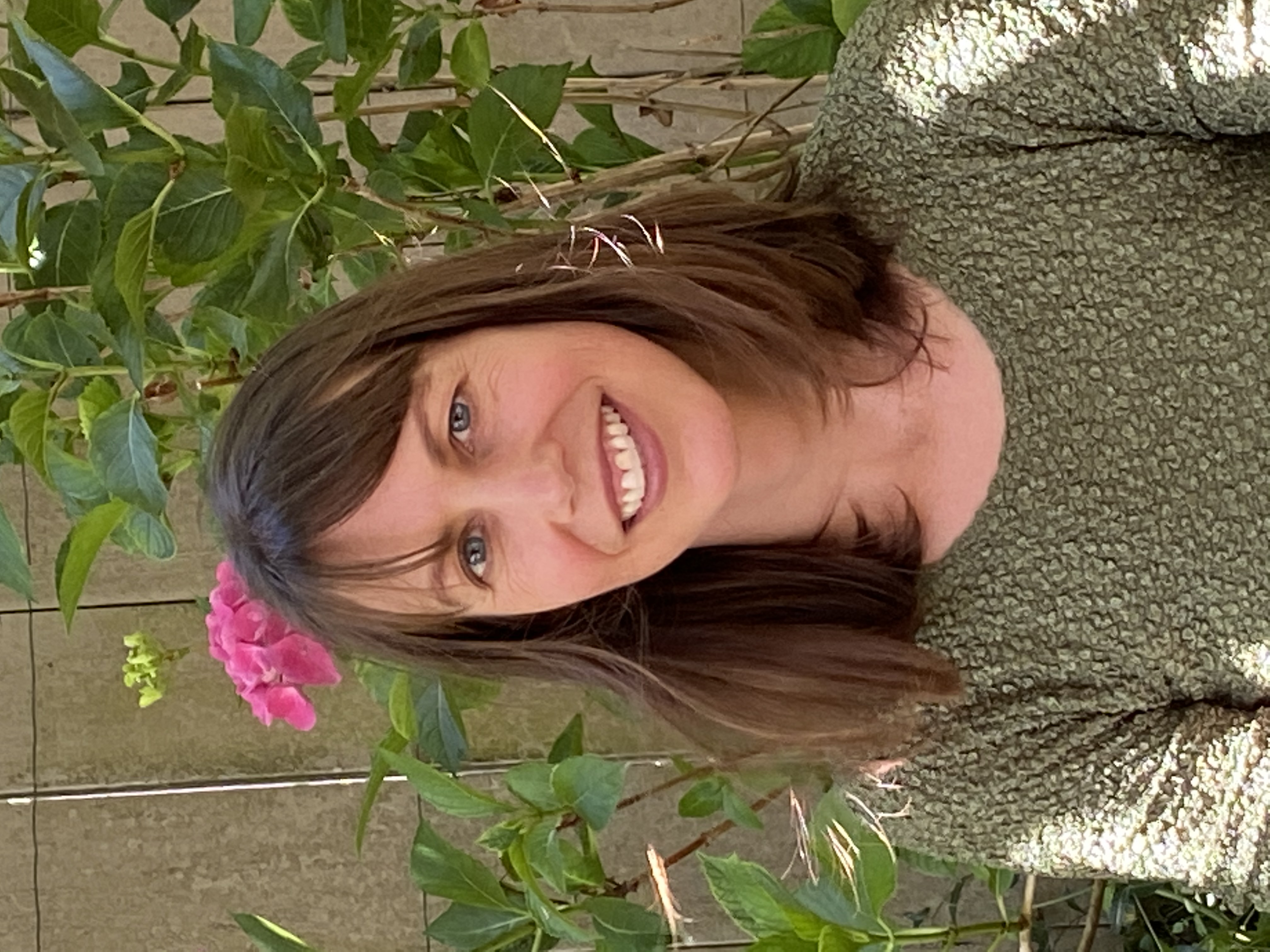
Katya Cengel is a freelance writer and author based in California. Her work has appeared in Smithsonian Magazine, New York Times Magazine and Vox among others. Her 2019 memoir "From Chernobyl with Love: Reporting from the Ruins of the Soviet Union" received an Independent Publisher Book Award.